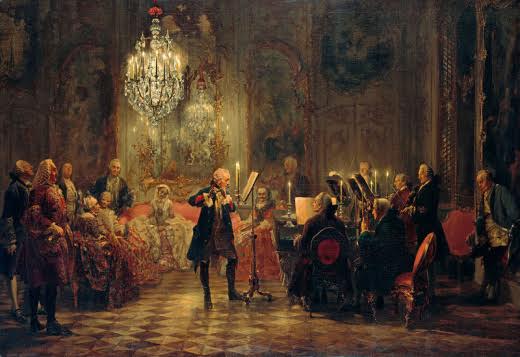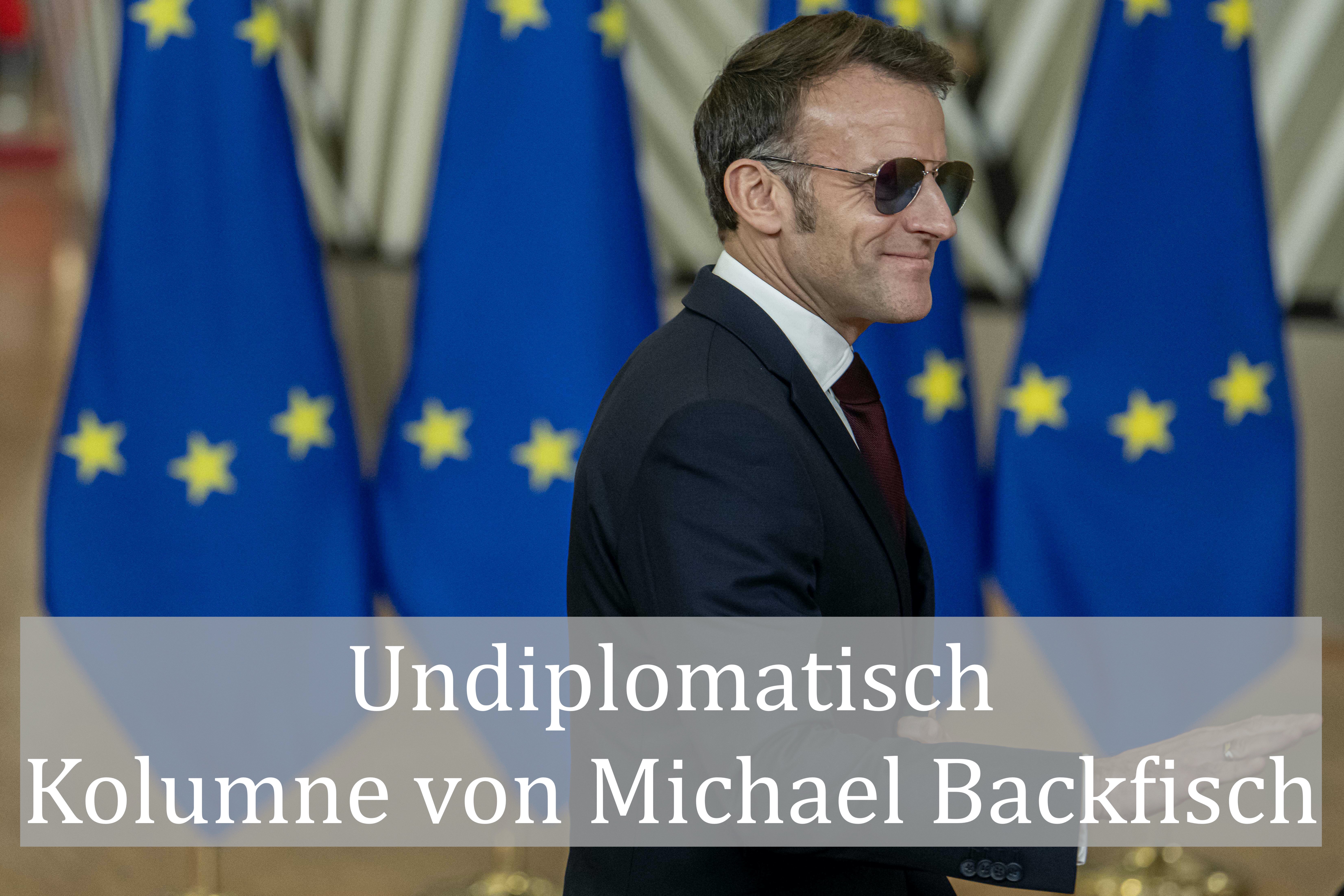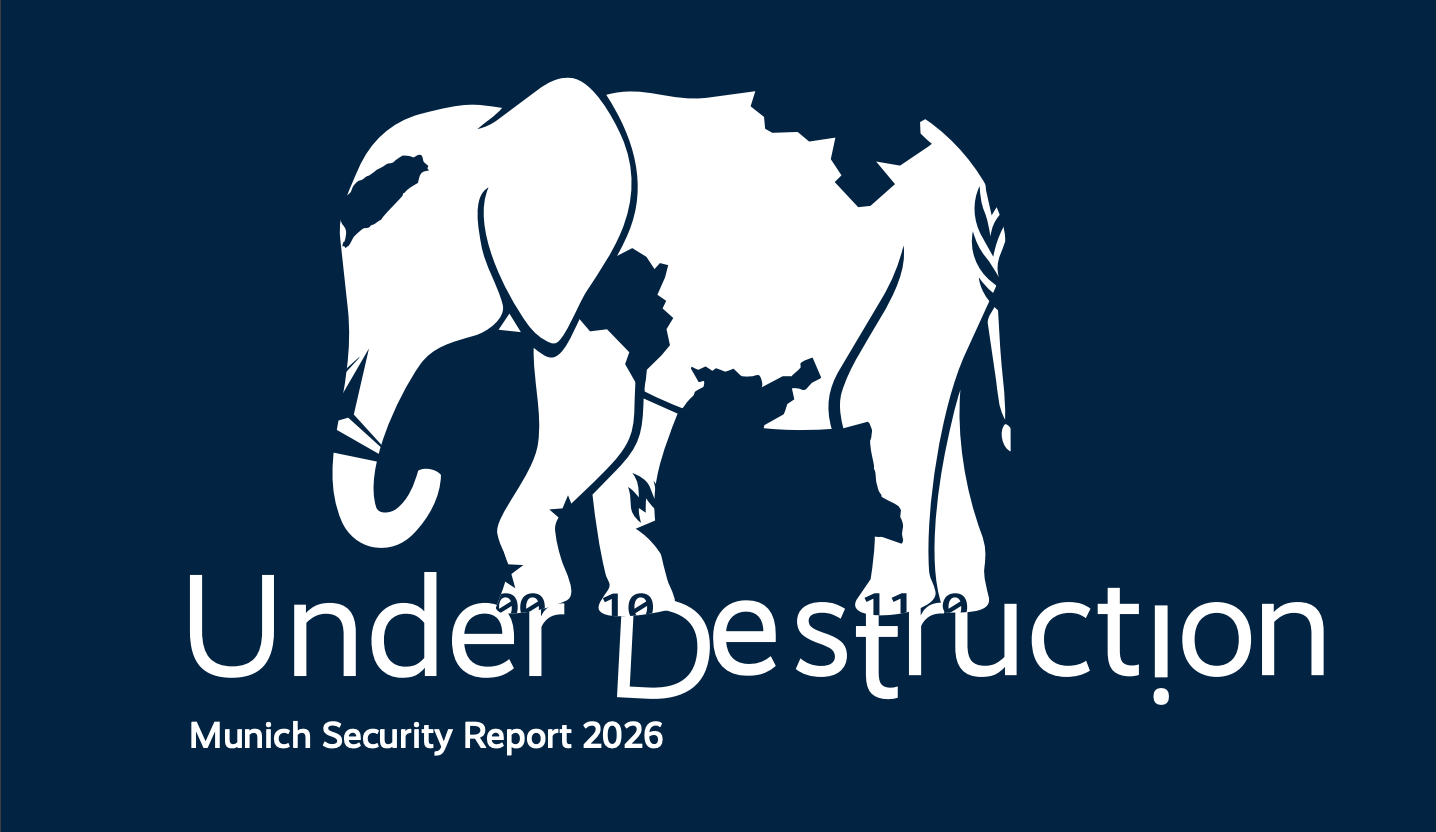diplo.news
The expertitis trap
By Volker Stanzel

Diplomacy without weapons is like an orchestra without instruments, said Frederick II. The era of this diplomatic philosophy has obviously returned. Today, for example, after an unsuccessful ultimatum, Donald Trump is trying to end the Iranian nuclear program by force of arms. And Israel, following failed talks about the release of the hostages, is relying on policies that starve the population in Gaza.
The time when a joint search for consensus replaced military instruments, especially at the most dangerous moments and with the help of international law and international organizations, seems over. Iran itself recognizes a return to a tradition of international relations: The stronger wins, and in the face of threats of violence, it is ready to negotiate.
China's behavior towards Taiwan is also bordering on real war, as is the case with the shores of the South China Sea. Negotiations to prevent death and destruction in the event of last need have been known well enough by humankind — so well that Frederick II's comparison with a music orchestra appears more ironic than cynical.
It is therefore hardly surprising how international diplomacy is returning to its old characteristics. Only a few years ago, Germany - Foreign Minister Heiko Maas - tried to launch an “alliance of multilateralism”; a thoroughly modern idea, born from the understanding that the principle established with the UN is to find solutions to problems most effectively together with other affected states; in any case without the use of force. The abolition of compulsory military service in Germany and elsewhere can also be understood as an expression of a new national feeling that interests on the international stage can be pursued more easily, namely by refraining from armed force and instead by analysing and solving problems.
The reforms of the Foreign Service in Germany also adapted to this: most recently by the Steinmeier of 2014, which sought to address problems through expert knowledge and negotiation. In this way, it set structural changes on track, which tended to place problem issues more and more in the hands of experts for this or that - in AA, one new organizational silo after another was gradually created. With the arrival of Foreign Minister Baerbock, the approach of making politics better out of tradition continued - here too through the right structures and clever experts: “feminist foreign policy” would be able to enforce feminist concerns globally just by filling posts with women, in a very similar way to climate foreign policy, led by an expert who is remote from the administration.
In this respect, Donald Trump's rapid and aggressive weakening of the United States Foreign Service is preparation for a policy that makes it easier to resort to the use of weapons - the attack on Iran was an example of how simple diplomacy has become again. The diplomatic stage is now strikingly similar to the one on which Frederick II moved - unsettling also because the sums that are now being earmarked to make Germany ready for war - according to the Foreign Minister - and the strongest military power on the continent - according to the Chancellor - prove how determined we are now also drawing on the martial tradition.
This includes what the new Foreign Minister announced when he took office: soon at least as many diplomats will be working at diplomatic missions abroad again as at the Berlin headquarters — unlike what has been the case as a continuation of Steinmeier's changes in recent years. This, translated into the language of bureaucratic implementation, means: expertise not acquired theoretically or with the help of think tanks, but locally, in intensive exchange with official or non-official representatives of the host country, together with other representatives in the country, in exchange from person to person, with daily telephone calls between colleagues at work level, as well as among ministers.
So when we say goodbye internationally to the beautiful appearance of multilateralism and plunge into the adventure of a “multipolar” world, it must be clear to us that the world is coming back in power: Each country is a pole for itself; everyone is fighting for itself. At the same time, it is clear that Frederick II's world also meant gains in effectiveness for diplomacy, thus for foreign policy, and therefore for the state - as long as the instruments were not played. In our time, instead of developing abstract strategies and many papers, this means the osmotic creation of strategic agreement: Many meetings of many participants, “morning rounds”, “director rounds” are more productive and therefore more important than the schematic processing of requirements.
The Foreign Minister must be at the center of a genuine network whose opinion is formed on the basis of experience and the awareness of “panta rhei,” i.e.: the world is constantly in motion. Wanting to assert oneself in this requires the formation of skills, arguably the ability to defend oneself, but primarily of thinking, understanding and knowledge. Exchange and interaction must be at the forefront, rather than the isolated silos of self-absorbed departments. Action, in turn, results from such an exchange, which leads to a consensus on objectives, strategies, and necessary statements. In fact, this requires a ministry that lives less internally than serves to bring together what is the case in international traffic on a daily basis.
The current order to develop “strategic concepts” goes straight to nothing — with the best will of all employees — because politics is not created according to recipes from the doctor or rules of the game from the human annoyance not caste. Or, perhaps, that alliance for multilateralism consisting of strategic meditation exercises that eventually lead to oblivion. That is why it is certainly tactically wise to set objectives only in general terms - “freedom, economy, security” is currently called healthily vague in Berlin - because it is precisely vagueness that has a thought-provoking effect.
The best foreign policy is created just like any policy. That means: out of unplanned developments, out of distress, but also out of euphoria in the face of emerging opportunities. As unpleasant as it may seem, Frederick II's direction is an essential element of such creative policy. Such a design does not wait for partners and opponents to set themselves up like on the chessboard, or even plan “strategically” — it acts. And she reacts as quickly as possible, sees through constellations of power and powerlessness thanks to her experience, reacts as always possible, corrects herself, and in an emergency, that orchestra actually plays.
Specific examples show how a thoughtful Willy Brandt achieved success in 1969 and a Helmut Kohl in 1989. Successes, however, have the disadvantage of tempting people to desire more and more of the same triumph — however, the jug goes to the well until —! Like the USA in 2003 after the first victory against Saddam, Russia in 2022, after outmaneuvering the West for the first and second time in 2008 and 2014. Prudence, caution, mindfulness and, yes, constant vigilance are therefore among the prerequisites of modern diplomacy as well as of traditional diplomacy. Successes can be thought of, they are wonderful to practice on the go board, but reality can only be experienced and created from practice.
Finally, it is necessary to ask at least whether the return to diplomacy based on immediate exchange, experience and situational adaptation is likely to conflict with modern technologies. It would be necessary to check whether artificial intelligence can provide support when it comes to the rapid analysis of complex situations, the recognition of patterns in negotiation processes or the networking of information from various sources. In this way, AI could help to better tune the diplomatic orchestra and increase the effectiveness of negotiations — but without replacing human judgment and tact, which — as in the past — remain indispensable. The challenge will be to use these new instruments — instead of the traditional ones used to shoot — wisely and responsibly to strengthen the art of diplomacy in the 21st century — drawing on the knowledge of past centuries.




